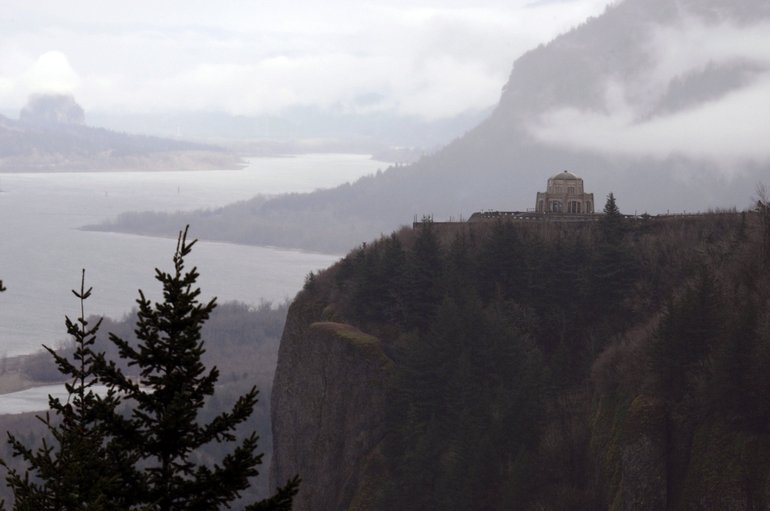A Democratic lawmaker from Sequim has introduced a bill to repeal the Columbia River Gorge Compact, which commits the states of Washington and Oregon to funding the bistate Columbia River Gorge Commission.
House Bill 3132, sponsored by Rep. Kevin Van De Wege, passed the House General Government Appropriations Committee last Friday. No House member from Southwest Washington serves on the committee, and no one other than Van De Wege testified.
According to the bill’s fiscal note, repealing the compact and defunding the Gorge Commission would save Washington about $300,000 over the next 18 months.
The state would incur one-time expenses of about $290,000 to buy out the commission’s office lease and cover annual leave and unemployment costs for all commission staff members.
Both the Washington and Oregon legislatures ratified the compact in 1987, the year after Congress passed the Columbia River Gorge National Scenic Area Act and President Reagan signed it into law.
Under its terms, the commission’s proposed budget and expenditures “shall be apportioned equally between the states.”
That means that if Washington refused to fund the commission’s operations, Oregon’s contribution to the commission’s budget would be nullified.
Gorge Commissioner Harold Abbe of Vancouver, a former lobbyist in Olympia, said commissioners received no notice of last Thursday’s hearing on the bill, nor did any Southwest Washington lawmaker. Even Schuyler Hoss, Gov. Chris Gregoire’s representative to Southwest Washington, was unaware of the bill until Abbe brought it to Hoss’s attention, Abbe said.
“It disturbs me that no legislators from Clark County were even consulted,” he said. “It also disturbs me that members of the Gorge Commission received no notice abut the bill. It’s the opinion of our legal counsel that no state can unilaterally just vote themselves out of the contract.”
Van De Wege said he notified House members from Clark County the day he introduced the bill and also notified the Gorge Commission staff, which provided budget numbers.
He said he was surprised that “the Gorge Commission did not show up” to testify at the Feb. 4 hearing.
Van De Wege said he introduced the bill solely as a budget-cutting measure.
“Over time, there is no doubt it would save money,” he said.
But he added that he expects the measure to be modified.
“I think this bill is not going to be signed the way it is,” he said. “What it may finally look like is for us to recommend that the governor do some negotiating” over the terms of the compact, he said.
Asked who would administer the national scenic area if the Gorge Commission is dissolved, Van De Wege said, “Our initial finding was the federal government would do what the Gorge Commission does now.”
The commission and its staff administer the management plan that governs private land use and development on nearly 300,000 acres in six counties with land inside the scenic area: Clark, Skamania and Klickitat in Washington and Multnomah, Hood River and Wasco in Oregon. The panel has 12 voting members, six from each state, as well as a non-voting U.S. Forest Service representatives.
The governor of each state appoints three commissioners and each of the six counties appoints one member.
Michael Lang, conservation director for the watchdog group Friends of the Columbia Gorge, also questioned whether the bill would pass legal scrutiny.
“To rescind the compact would basically be a breach of contract with the state of Oregon,” he said. “Interstate compacts are legally binding agreements between two states. Neither state can act unilaterally.”
As for the practical effect, he said, “it would be to abandon the state’s role in protecting the Gorge, and to open one of its icons to an uncertain future. Unregulated development in the Gorge is not in the state’s interests.”
Abolishing the commission also could jeopardize economic development in the Gorge, Lang said.
“Tourism drives the Columbia River Gorge economy. If you sacrificed the Gorge to unregulated development, it would ruin the scenic and natural resources that Gorge communities depend on.”
Ironically, Friends of the Gorge announced Tuesday that President Barack Obama’s 2011 budget includes nearly $1 million to purchase land from willing sellers in the scenic area to protect land with high scenic, natural, cultural or recreational values.



